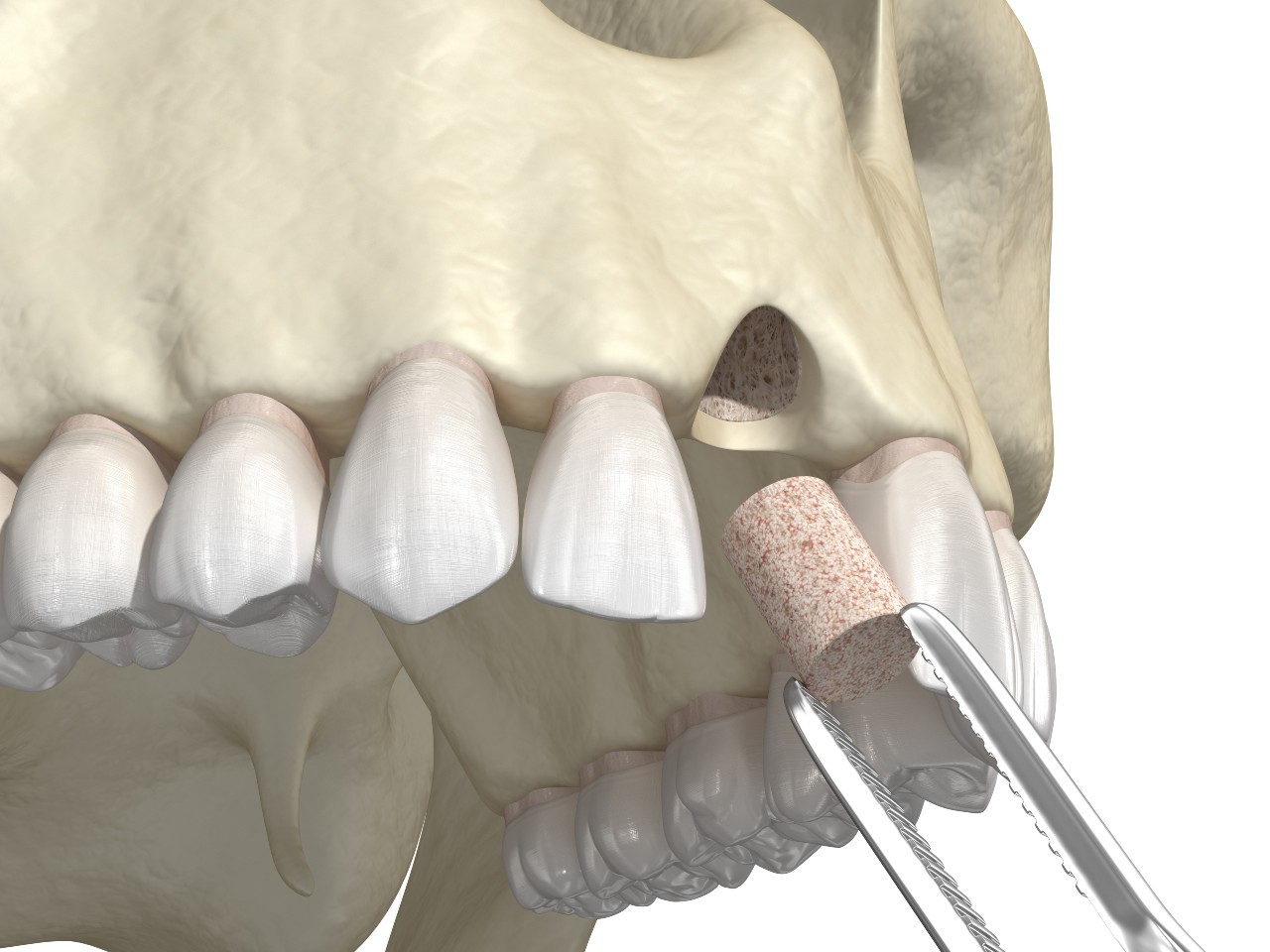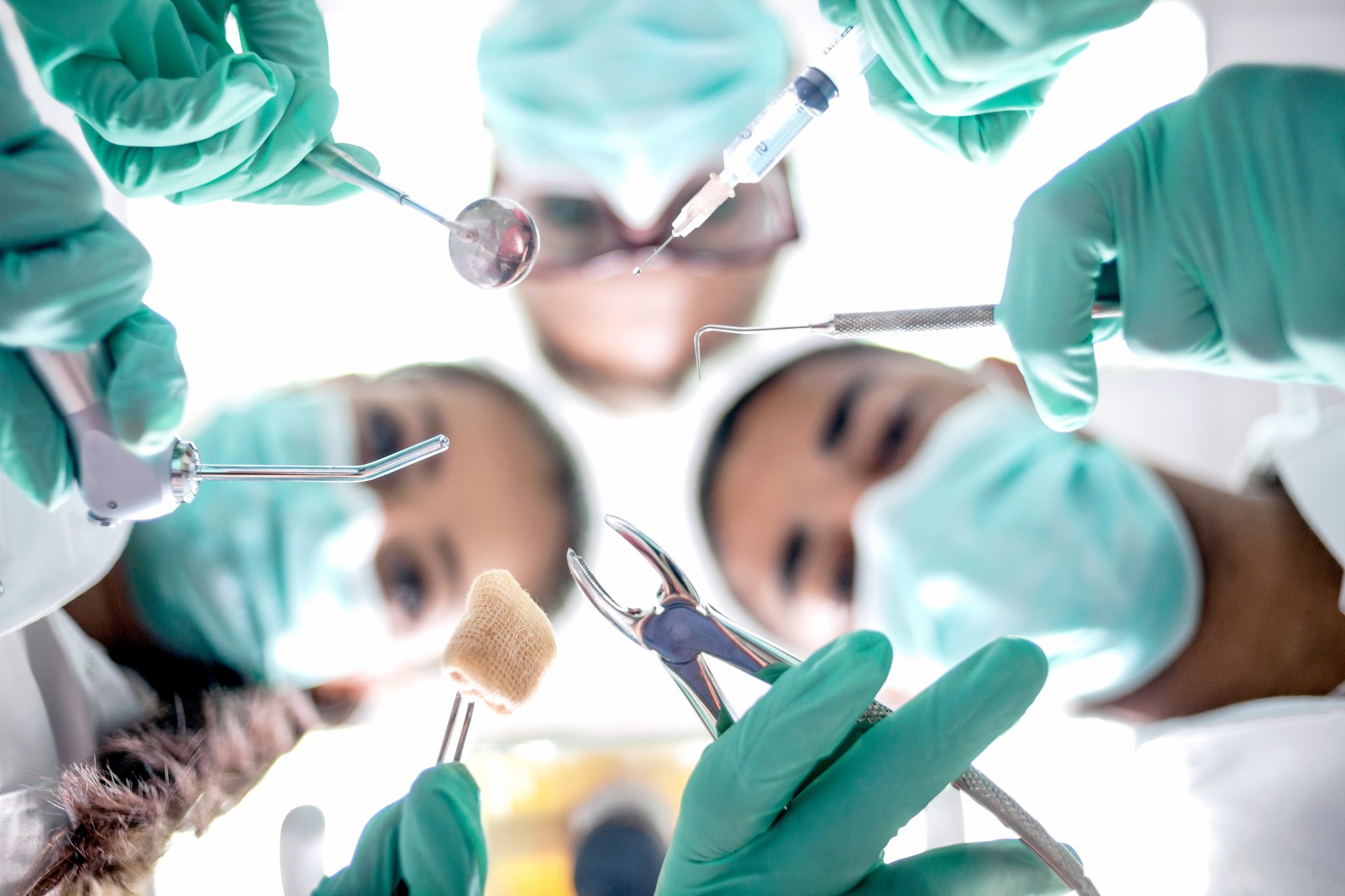A dental bone graft is typically used for patients that have jawbone issues. Bone grafts are a common procedure and have been done for years. The procedure is relatively minor and can be done quickly. If patients have lost a tooth or have severe gum disease, bone grafts can be used to help restore your gums and jaw. Over time gum disease can progress if not treated and cause bone loss. This can affect your appearance, and cause your jaw to sag or look sunken in. At this point there is no bone left to support your face. Bone grafting can help to restore the support needed.
How Does Bone Grafting Work?
Typically, the procedure is done before your implant is placed. If you need to have a tooth removed that is done first, and then we will prepare the area for a bone graft if the patient does not have enough bone present to support the dental implant. This graft will help to create a stable base for your new tooth. Bone grafts can be taken from your own body, and are commonly taken from the back of the jawbone. Another option is to use a bone grafting material. This option is common because the patient does not need a surgical incision to reach the bone.
The area is cleaned and the bone grafting material is placed. Once the bone graft is complete the patient will need to heal for a few months before you can come back to have your implant placed. This gives the graft time to heal and develop new bone around the graft area. The procedure takes a few hours and is relatively simple.
What Can I Expect During Healing?
Some pain is expected after a bone graft procedure, but should subside after a few days. Patients can treat the area with a cold compress and take over the counter medications to help ease the pain. We recommend a liquid diet after your bone graft procedure. Slowly patients can introduce soft foods, and eventually resume their normal diet. Patients should avoid any strenuous activity that may affect the bone graft area during healing.
Interested in Finding Out More?
At Jesse Lanzon DDS MD, we offer may procedures to help you get the smile of your dreams. Bone grafting can help create a sturdy base for dental implants, and is a great option for patients who have bone loss. Our doctors have years of experience in oral surgery and we strive to provide the highest level of service to all of our patients.
To find out if bone grafting can benefit you, or to inquire about dental implants, contact Jesse Lanzon DDS MD, and our friendly staff will be happy to assist you.








